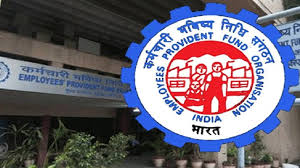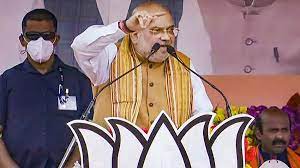Your spouse not only helps you in meeting your social and personal obligations, but also helps you in saving income tax. There are certain tax benefits by way of which you can enhance you tax savings through your spouse.
Let us discuss some of the important provisions.
Expenses incurred for your children
At present Indian income tax laws allow you to claim a deduction for education expenses incurred in any university, college, school or educational institution in India in respect of full-time education of two of your children, under Section C, up to an amount of Rs 1.50 lakh in a year.
This deduction is available along with other eligible items like PPF, ULIP and PF etc. Since this benefit can only be claimed for two children, if there are more than two children, the other spouse can also claim these expenses for up to additional two children as the limit of two children is applicable for a taxpayer and not for a family.
In case you do not have more than two children, but the expenses on education for your children exceed the limit available under Section 80 C, these expenses can be bifurcated between two parents in such a way so as to maximise the claim amount.
Medical Insurance
Section 80D allows an individual and HUF to claim deduction up to Rs. 25,000 for medical insurance premium for self and family. Howvever, the actual cost of buying a health insurance policy is so high that even the limit of Rs. 25,000 is not sufficient enough for the entire family to be adequately covered.
As the limit of Rs. 25,000 available under Section 80D includes a sub limit of Rs. 5,000 for preventive health check-up, the effective limit available for health insurance premium comes down to Rs 20,000 in case you are availing tax benefit of preventive health check-up.
Health insurance premium paid in excess of these limits cannot be claimed under Section 80 D in most of the cases if only one spouse is the taxpayer. However, in case your spouse is also a taxpayer, the health insurance can be bought in such a way so as to ensure that both the spouses are able to claim the fullest possible benefits of Section 80D while ensuring that the entire family gets adequate health insurance cover.
Leave Travel Allowance (LTA) benefits
A person can avail the benefit of LTA in respect of two journeys undertaken during a block period of four years. However, if both the spouses are employed, then both of them together can claim LTA for four journeys undertaken during the period of four years and thus can go on holidays every year during the block of 4 years. There is no absolute limit on deduction for LTA.
Home loan benefits
Section 80C of the Income Tax Act allows an individual and an HUF to claim deduction for certain items which are almost mandatory in nature like Life Insurance Premium, Provident Fund and repayment of housing loans. With increased property prices and consequent enhanced amount of home loan, the amount of principal repayment itself exceeds the maximum available limit of Rs. 1.50 lakh in most of the cases.
This results into most of the home loan borrowers not being able to claim the full benefit of home loan repayment available under Section 80C. In such a case if only one spouse is working, the benefit in respect of such overflowing home loan repayment gets lost.
However, in case both the spouses are earning, the deduction for home loan repayment of Rs. 1.50 lakh can be claimed by both of them provided both spouses are joint owners and co-borrowers as well.
Presently all the tax payers are allowed to claim interest on home loan up to Rs. 2 lakh in respect of property used for self occupation. So in case of a jointly-owned house on which a home loan is taken in joint names and serviced by both the spouses, both can claim the deduction of Rs. 2 lakhs each under Section 24(b). Moreover, there is a limit of Rs. 2 lakh every year on set off of losses under the head ‘income from house property” against other incomes.
So, it makes sense for both the spouses to become joint owners and co borrowers so as to make both eligible to claim benefit of set off of up to Rs. 2 lakh in each spouse’s ITR for interest paid on the home loan. In case the property is let out, the limit of Rs 2 lakh will apply after internally setting off the taxable portion of the rent received.
Investments in equity
As per Section 112A a person can claim an initial exemption up to Rs. 1 lakh on long-term capital gains arising on sale/transfer of listed equity shares or units of equity oriented schemes every year provided Security Transaction Tax (STT) has been paid.
Since this exemption can be claimed by each tax payer, the investments can be made in the names of both the spouses so as to avail the benefit of this exemption every year as long as it is possible.
From the above discussion, it becomes apparent that although at present there are no separate tax benefits available for a working spouse, however, a working spouse can still take the benefit of the existing provisions of tax laws to minimize the overall tax liability of the family as a unit.





































